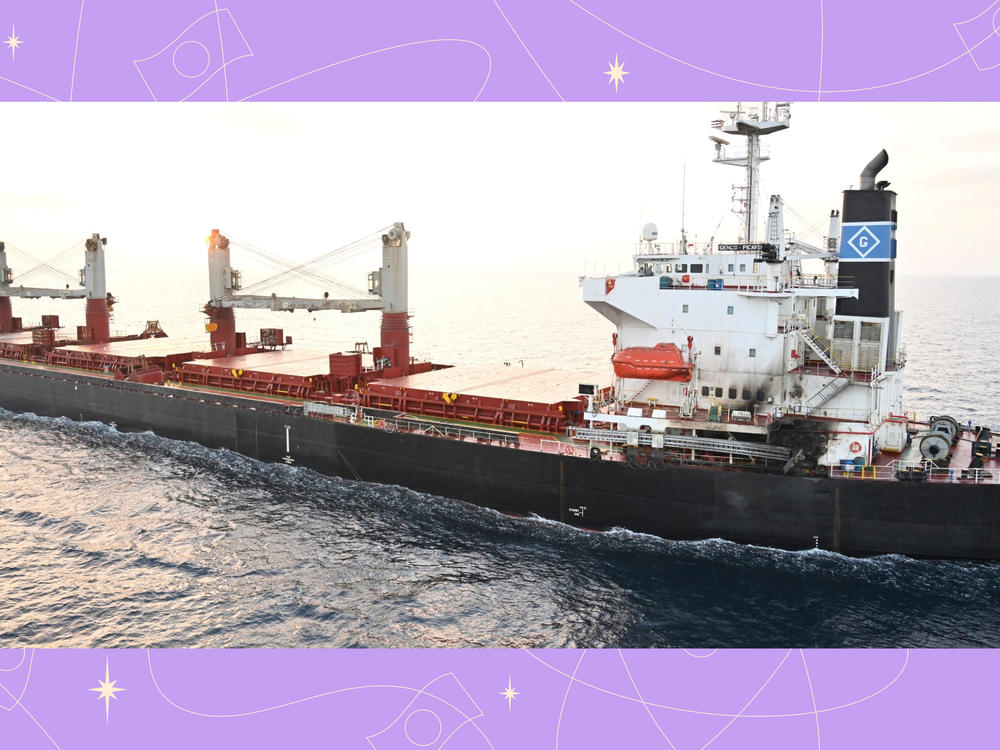Section Branding
Header Content
How the Navy came to protect cargo ships
Primary Content
The Genco Picardy is not an American ship. None of its crew are U.S. nationals, and when it sailed through the Red Sea last month, it wasn't carrying cargo to or from an American port.
But when the Houthis, a tribal militant group from Yemen, attacked the ship, the crew called the U.S. Navy. That same day, the Navy fired missiles at Houthi sites.
On today's show: How did protecting the safe passage of other countries' ships in the Red Sea become a job for the U.S. military? It goes back to an idea called Freedom of the Seas, an idea that started out as an abstract pipe dream when it was coined in the early 1600s – but has become a pillar of the global economy.
This episode was hosted by Alex Mayyasi and Nick Fountain. It was produced by Sam Yellowhorse Kesler, edited by Molly Messick, fact-checked by Sierra Juarez, and engineered by Valentina Rodríguez Sánchez, with help from Maggie Luthar. Alex Goldmark is Planet Money's executive producer.
Help support Planet Money and get bonus episodes by subscribing to Planet Money+ in Apple Podcasts or at plus.npr.org/planetmoney.
Always free at these links: Apple Podcasts, Spotify, Google Podcasts, the NPR app or anywhere you get podcasts.
Find more Planet Money: Facebook / Instagram / TikTok / Our weekly Newsletter.
Music: Universal Production Music - "Step Forward," "The Captain," and "Inroads"

